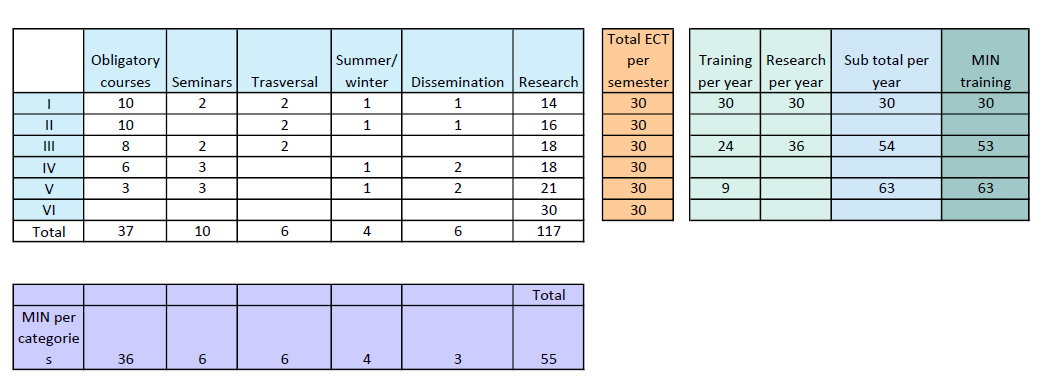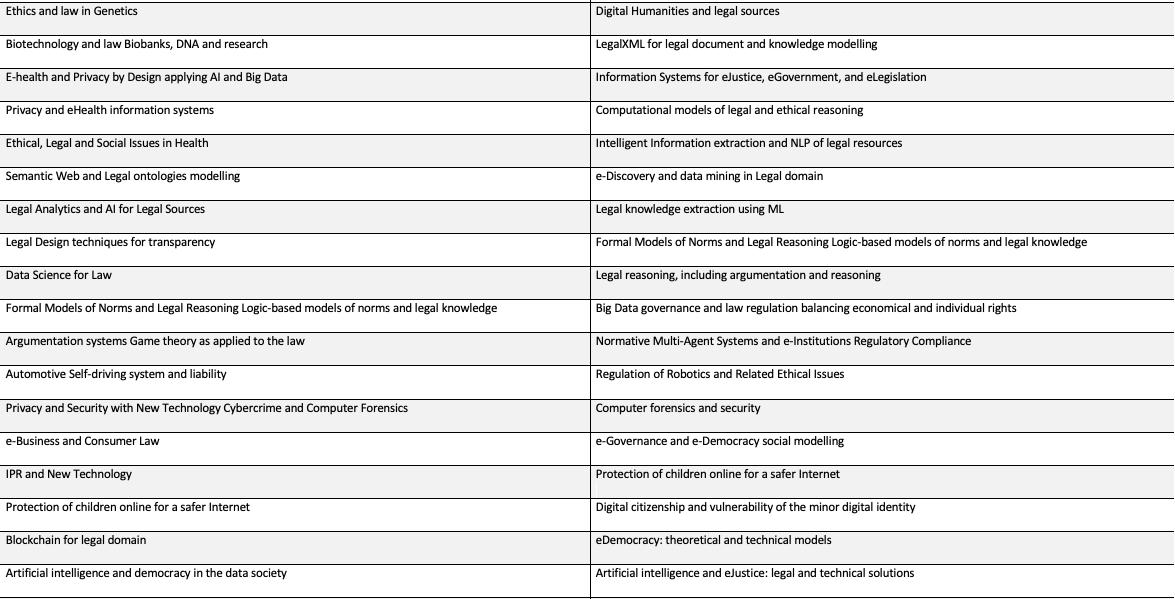- Home
- Program
- Governance Apri sottomenù
- Phd Apri sottomenù
- Partners
- Projects Apri sottomenù
-
Activities
Apri sottomenù
- Academic year 2019/2020
- Academic year 2019/2020 - Rights of the Internet of Everything
- Academic year 2020/2021
- Academic year 2020/2021 - Rights of the Internet of Everything
- Academic year 2021/2022
- Academic year 2022/2023
- Academic year 2023/2024
- Events and Conferences of MSCA-ITN LAST-JD-RIoE
- Academic Year 2024/2025
- News
- Admission
- Contacts
Program
LAST-JD is an International PhD programme. The consortium is composed of 29 partners (9 beneficiaries, 2 research centers, 4 associated universities, 14 industries) with seven EU countries (Italy, Luxembourg, Lithuania, Spain, Austria, Germany, Belgium) and two non-EU countries (Australia, USA). The 9 universities are: the University of Bologna (UNIBO), University of Turin (UNITO), University of Luxembourg (UNILUX), the Universitat Autònoma de Barcelona (UAB), Mykolas Romeris University (MRU), KU Leuven (KUL), Leibniz Universität Hannover (LUH), Universität Wien (UNIVIE) and the Universidad Politécnica de Madrid (UPM). All the said universities share framework co-tutelle agreements for the awarding of double degrees.
The objective of the doctoral programme in Law, Science and Technology (LAST-JD) is to offer interdisciplinary integrated competences making it possible to deal with the new challenges the information society and the newly emerging technologies will increasingly pose in the future in the legal domain and the socio-ethical field. Upon completing of the doctoral programme, participants will be able to become legal professionals in specific ICT domains like software, databases, big data, AI, blockchain, robotics; government officials capable of managing eGovernment projects; researchers in specialised laboratories (medical genetic or nanotechnology); members of ethics committees; computer-forensics and security experts; legal-knowledge engineers. IoE technologies are viewed through the lens of the law, ethics, and human rights. Particular attention is dedicated to the Internet of Data, the Internet of Things, the Internet of Persons, the Internet of Health, the Internet of Money.
LAST-JD
Law, Science and Technology, is a 3-Year PhD Program, part of the LAST-JD Phd Programme, funded by a research grant from Marie Skłodowska-Curie Actions (i.e Marie Skłodowska-Curie ITN EJD grant agreement No 814177).
The program provides 15 positions managed by nine beneficaries: University of Bologna (UNIBO), University Turin (UNITO), University Luxembourg (UL), the Universitat Autònoma de Barcelona (UAB), the Universidad Politécnica de Madrid (UPM), Mykolas Romeris University (MRU), the Centre for IT and IP Law of KU Leuven (KUL), Leibniz Universität Hannover (LUH), Universität Wien (UNIVIEN).
Internet of Everything (IoE) extends the concept of Internet of Things (IoT) to encompass not only devices but also individuals and data. Proper study of IoE cannot be limited to engineering and computer science. It is a topic that should be investigated using a variety of different scientific and interdisciplinary approaches as well as technical, legal, economic, ethical, and philosophical points of view.
How shall the algorithms which are at the core of IoE be governed? And what about privacy, intellectual property, data ownership, behavioral control, fundamental rights, and ethical principles? These are all critical issues that need to be examined to ensure that the IoE marketplace produces a sustainable technological environment in which we all will live.
Study is be conducted at a number of research institutes and includes working with industrial partner organizations.
ECTS Distribution
- I semester - 16 ECTS courses, 2 ECTS for the Personal Career Development Plan (PCDP), 12 ECTS research - total: 30 ECTS onsite in UNIBO
- II semester - 16 ECTS courses, 14 ECTS research - total: 30 ECTS onsite in UNIBO/UNITO
- III semester - 12 ECTS courses in mobility location or summer school or dissemination, 18 ECTS research- total: 30 ECTS onsite in UNILUX/UAB/KUL/VUB/UA/UPM/UNIBO/UNITO
- IV semester - 12 ECTS courses or summer school or dissemination, 2 ECTS for PCDP, 16 ECTS for thesis writing - total: 30 ECTS
- V semester - 9 ECTS courses or summer school or dissemination, 21 ECTS Host institution abroad or visit period, thesis writing - total: 30 ECTS
- VI semester - 24 ECTS for internship/summer school/host institution abroad, 6 ECTS for thesis writing - total: 30 ECTS
Job opportunities and potential areas of employment
The doctoral programme offers innovative and up-to-date integrated training enabling candidates to carry out cutting-edge research in different subjects, such as bioethics and law & computer science, in topics that require a genuine interdisciplinary approach. It includes an internship in the third year offered by 14 industries, where candidates can apply their research and complement it with a professional experience. Upon completing the programme, graduates will become highly skilled researchers and professionals, meeting the requirements of the public and private sectors. They will be able qualified to seek employment, for example, in:
- law firms working on IPR, privacy, e-commerce, and patenting;
- high-tech software houses where artificial intelligence is applied;
- specialised research centres such as medical genetic centres, nanotechnology centres, and robotics laboratories;
- government offices that manage innovative ICT and eGovernment, eJustice, and eParliament projects;
- ethics committees that analyse scientific innovations and write policy documents.
Internationalization features
Three mobility periods, for a total of 12 months, are required to ensure that all students follow courses in an integrated way and can benefit from the specific expertise available at partners universities, providing in particular an opportunity to experience research activity in departments of different kinds and to familiarize with local languages and the different legal systems of the EU. The 9 partner universities provide a coordinated training offer, in terms of experts, workshops, conferences, research topics, tutors, all boosting the internationalization features of the PhD programme. Associated partners procide multiple training opportunities (ITTIG-CNR, Data61- CSIRO, Univ. del Piemonte Orientale, Univ. di Pittsburgh, Univ. La Trobe, Observatorio de Bioética y Derecho UB).

This is an example of the distribution of the credits for categories, semester, years, activities.
Each PhD candidate, using the parameters min-max, can customize his/her offer and to submit for the approval to the Board.

List of research topics (not exhaustive list)
Highlights
-
This file is officially approved by the Legal Studies Department and by the LAST-JD Board, checked by the UNIBO Governance according to the Ministry of Italy rules for the PhD programme. This file defines the min/max credits for passing the year, the conversion table of credits and the subdivision of the teaching credits in categories (e.g., obligatory courses, seminars, summer/winter schools, dissemination activities).
-